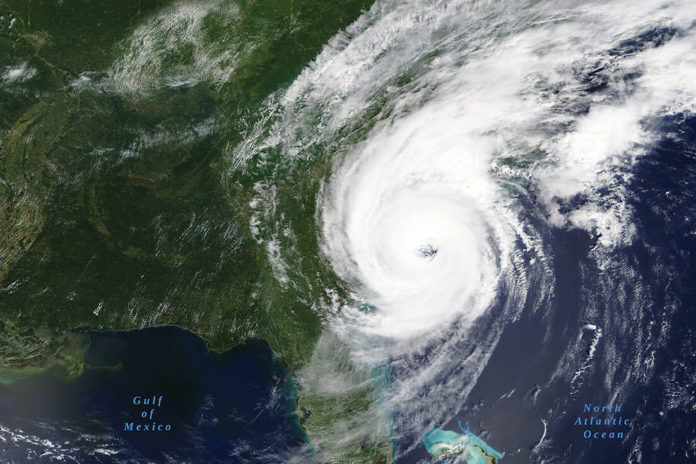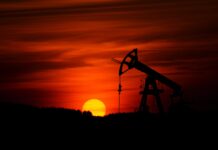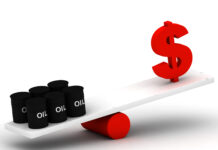
On Tuesday, Sept. 3, Vermont Senator Bernie Sanders, a leading contender for the 2020 Democratic Party’s presidential nomination, issued a tweet containing the following text:
“The fossil fuel industry is now the equivalent of the tobacco industry. It creates death and destruction, then spends billions denying its responsibility. Let us be clear: Hurricane Dorian has everything to do with climate change, which is the existential crisis of our time.”
The tweet, of course, was designed to take political advantage of the devastation of Grand Bahama Island by Hurricane Dorian airing on television screens all across the United States. As a political tactic in a Democratic Party presidential primary, it is clever. As a history lesson, it is far less so.
Grand Bahama, on the morning of Sept. 4, looked a lot like Galveston Island in Texas did on Sept. 9, 1900. On Sept. 8 of that year, the deadliest hurricane in American history slammed into Galveston Island with winds in excess of 140 mph — which would make it a Category 4 hurricane — and a storm surge that inundated the entire island.
Those interested in the story of the Galveston Storm of 1900 should read a wonderful book by author Erik Larson titled “Isaac’s Storm.” Larson reports that captains and sailors from ships coming into Galveston’s port had been warning islanders for days in advance of a large storm lurking in the Gulf, and a prominent local weatherman, Isaac Cline, also tried to warn locals that a big storm was coming.
But government officials, using the primitive projection tools of the time, assured residents that a major hit on the island was virtually impossible due to the shallow waters of the Gulf of Mexico and other factors, and predicted that any storm in the Gulf would most likely make landfall in Florida. Thus, few people evacuated Galveston in advance of the storm, and without air travel or gasoline-powered automobiles, evacuation for most residents would have been difficult if not impossible in any event.
Thus, it was that more than 8,000 Galvestonians died in the resultant inundation. Cline himself lived in a two-story home near the downtown area, and was only able to survive the rising floodwaters by climbing onto the roof of his house along with his family. The destruction of all but the sturdiest of buildings on the island, like the famous Moody Mansion and many of the downtown business establishments, was utter and complete.
For many months afterward, the waste and debris from those buildings that had been carried out to sea was washed back up onto the island’s shores, along with the rotting carcasses of human beings, farm animals and pets who had perished in the storm. The cleanup operations were grim and seemingly unending; the stench was horrible and reportedly lingered for years afterward.
The story we saw coming out of Grand Bahama on the morning of Sept. 4 was similarly tragic. The island was largely inundated by the storm surge, and thousands of houses and non-sturdy buildings had been destroyed. The debris that was carried out to sea will wash back up onto shore in the months to come.
But that debris and refuse will not be accompanied by the rotting corpses of thousands of dead human beings. Many of the island’s pets and other animals were also taken to safety and even evacuated off the island, thanks to volunteer animal rescue operations.
That happy result is largely due to modern means of predicting days in advance the path these storms will take. But it is also due to the existence of modern means of travel that allowed so many of the residents there to evacuate the island.
Virtually all of those means of travel, whether by boat, by plane or by automobile, as in the case of mainland U.S. residents in several states who are evacuating their own homes in advance of the storm’s path, are powered by gasoline or diesel fuel: almost 100% of them. Even the growing number of electric vehicles on the roads now obtain their charge from power stations whose electricity is generated by a U.S. energy grid that is more than 80% powered by fossil fuels, including coal.
These modern, fossil-fueled means of transportation are why — when the ultimate death toll from this very strong hurricane is totaled up — the number most likely will consist of two digits, instead of four or five digits. As of two weeks after the devastating storm, the Grand Bahama death toll is at eight.
So, when you read and hear messages from politicians like Sen. Sanders, demonizing the tens of thousands of fossil fuel industry workers for somehow creating major hurricane events similar to those which have occurred for millions of years in the Atlantic Basin, remember that the deadliest hurricane recorded in American history occurred in 1900, when Americans were traveling using horses and buggies, almost a full century before the term “climate change” came into vogue.
Sanders’ message dehumanizing everyone who works in America’s oil and gas industry is shameful, and has no place in civil discourse. Unfortunately, folks in the business have had to get used to being the targets of this sort of slanderous attack.
Here’s a thought: Next time you run into someone who works in America’s oil and gas industry, thank them for producing the fuels that help save so many human lives in advance of these terrible storms. I guarantee you they will appreciate the gesture.
About the author: David Blackmon is the Editor of SHALE Oil & Gas Business Magazine. He previously spent 37 years in the oil and natural gas industry in a variety of roles — the last 22 years engaging in public policy issues at the state and national levels. Contact David Blackmon at [email protected].














